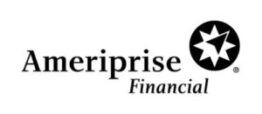
John William Cutshall of Frederick Maryland a stockbroker formerly registered with Morgan Stanley has been barred from associating with any Financial Industry Regulatory Authority (FINRA) member according to an Order Accepting Offer of Settlement based on findings that (1) Cutshall converted a customer’s funds and (2) Cutshall improperly utilized a customer’s funds. Department of Enforcement v. John W. Cutshall Disciplinary Proceeding No. 2014041590801 (Apr. 11, 2019).
According to the Order, Cutshall was responsible for servicing the account of LB Residuary Trust. Apparently, the LB Residuary Trust, which was Cutshall’s customer, was comprised of funds from the LB Trust as well as the JB Trust which contained an estimated $612,084.00 in funds. Evidently, after the JB Trust was funded, a total of $400,000.00 had been taken from LB Residuary Trust by Cutshall while serving as Trustee. The Order stated that Cutshall signed thirty-four checks drawn against the customer’s account at RBC Capital Markets. Evidently, those checks had been deposited by Cutshall into his own banking account.
The Order stated that a handwritten note had been produced by Cutshall which modified the LB Residuary Trust terms to make Cutshall a beneficiary of half of the JB Trust corpus. However, the Order reported that the documents designating Cutshall as JB Trust’s beneficiary had not been signed by LB.
Ultimately, Cutshall kept $170,900.00 of the funds which should have been held in the LB Residuary Trust’s account. Consequently, FINRA stated that Cutshall’s conversion of the customer’s funds was violative of FINRA Rules 2010 and 2150(a).
Moreover, the Order revealed that Cutshall disadvantaged the HSR Trust – another customer of his. Supposedly, Cutshall was responsible for administering this Trust for the benefit of an individual, DR. Yet, Cutshall reportedly utilized $2,000.00 worth of the funds at a gambling facility, Charlestown Gaming, in West Virginia. Apparently, after the withdrawal was effected, Cutshall was notified that there was a problem with the Trust account. Cutshall reportedly failed to see that the customer’s account had been reimbursed until he was pressured through compliance personnel to address the issue. FINRA found Cutshall’s withdrawal was utilized for his own benefit; conduct violative of FINRA Rules 2010 and 2150(a).
The Order additionally revealed that Cutshall engaged in violative conduct through being fiduciary on a customer’s account without notifying his employers’ compliance divisions and management. Specifically, Cutshall was required by RBC Capital Markets to furnish any trust documents concerning accounts where he was listed as a fiduciary. He was also restricted from engaging in fiduciary activities unless the firm authorized the arrangement. Evidently, Cutshall failed to inform RBC Capital Markets that JB Trust designated him as fiduciary. Cutshall further failed to provide the firm with the note declaring him a beneficiary of JB Trust’s assets.
Additionally, at the time Cutshall was registered with Morgan Stanley, he was required to furnish information to the firm about his fiduciary status with JB Trust. Cutshall supposedly handed over some documentation but particularly omitted any information referencing him as a beneficiary. The Order stated that the request for Cutshall to be a fiduciary on JB Trust was approved by Morgan Stanley conditioned on Cutshall not making any unauthorized distributions for his benefit. Ultimately, Cutshall disregarded Morgan Stanley’s restrictions, and prevented the firm from being able to actively supervise his involvement with JB Trust.
The Order additionally referenced Cutshall’s failure to be forthcoming in the compliance questionnaire administered by Morgan Stanley. Apparently, Cutshall was administered a Sales Questionnaire on 2014 which called upon him to identify if he was ever made a beneficiary on a non-family member customer’s account. Cutshall supposedly responded to this question in the negative; however, he was not only named a beneficiary but took money from the funds belonging to LB Residuary Trust. FINRA found Cutshall’s misrepresentation of the compliance questionnaire to be violative of FINRA Rules 2010.
FINRA Public Disclosure further reveals that Cutshall was discharged by Morgan Stanley based upon allegations of Cutshall’s failure to disclose information to the firm about his fiduciary status and problematic trust account withdrawals.








